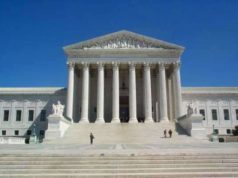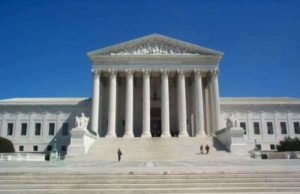
The Facts on Fletcher v. Peck
Fletcher v. Peck was a Supreme Court case in 1810 where the court decided that a grant to a private land company could be considered a contract under the Contract Clause of the Constitution. Furthermore, once the contract was made, the contract could not be repealed. Furthermore, Fletcher v. Peck established the exact interpretation of the Contract Clause and also demonstrated the Supreme Court’s ability to strike down a state law because of constitutionality.
The dispute pertaining to Fletcher v. Peck started in 1795. In Fletcher v. Peck , the Georgia legislature granted approximately 35 million acres of state land to different private speculators at 1.5 cents per acre. This area includes tracts around the Yazoo river in Alabama and Mississippi. Later, it came to light that every single legislator except for one who voted for the grant was bribed.
The next year, new state legislature repealed the grant since it was fraudulent. One of the speculators who had purchased the land was John Peck. He had sold some of the land to Robert Fletcher. After the sale had been voided because of state law, Fletcher brought suit in Fletcher v. Peck for damages against Peck by saying that Peck had lied about his promise for a good deed.
A federal circuit court first ruled for Peck in Fletcher v. Peck, but Fletcher then appealed the case to the U.S. Supreme Court. The Court had to examine Fletcher v. Peck and the question about if the 1796 act which repealed the 1795 act violated Section 10 of Article I of the Constitution.
The Supreme Court decided in a 4-1 decision that the State of Georgia had first had violated the Contract Clause of the Constitution by repealing the land grants. The Supreme Court concluded that while the fraud underlying the grants was bad, Fletcher’s argument about Georgia having the power to repeal the corruption was not correct. The Court felt that Peck was simply an innocent third party caught between two valid contracts.
Because of this, Peck was not included in the original fraud that the legislature of Georgia worked to repeal. The suit in Fletcher v. Peck against Peck by Fletcher was dropped and the law that repealed the grants was struck down.
The Supreme Court’s strict interpretation of the Constitution’s Contract Clause was later modified in Charles River Bridge v. Warren Bridge 17 years later, but has still acted as a large barrier to the state ability to regulate the economy as well as business corporations.



























